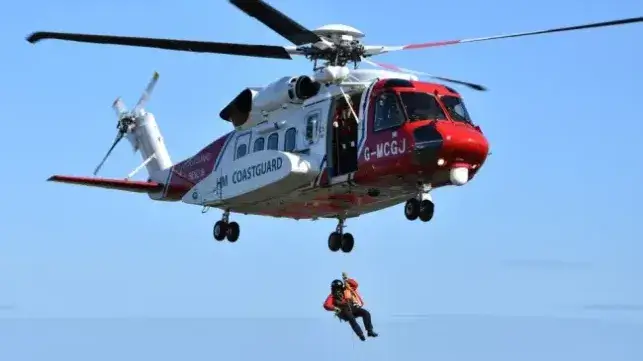UK Offshore Industry Imposes 275-Pound Weight Limit on Workers

After extensive talks between offshore energy companies and HM Coastguard, the industry standards association Offshore Energy UK has announced that it will impose a strict maximum weight limit for offshore platform workers in the UK North Sea, effective November 2026.
The issue, according to OEUK, is in the challenge of extracting survivors of a helicopter crash or a platform disaster from the water. When a rescue helicopter arrives on scene for a hoist, the winch has to be able to handle the weight of the rescue swimmer, a litter and the survivor all at the same time; this leaves only 124.7 kilos (275 pounds) available for the survivor, including any clothing.
About five percent of UK offshore workers weigh more than this maximum safe load limit. If any of these individuals should need a rescue, they would exceed the safe load for the standard rescue helicopter winches used by response agencies in the North Sea region, including the UK, the Netherlands and Norway. "Anyone above this weight may not be guaranteed rescue in an emergency," said OEUK. "This limitation, combined with other offshore safety risks, makes it vital that installations ensure every worker can be safely evacuated or rescued if required."
The regulation would require about 2,500 people to lose weight in order to comply. An additional 2,500 people may need "some additional support and weight management," OEUK health and safety manager Graham Skinner told BBC. He added that average weight has been on the rise for some time, and affects the industry's safety planning across the board.
"We’ve worked together for the last two and a half years as an industry to find solutions across things like lifeboats, stretchers, helicopter rescue, and we’ve really discovered a weight limit is the only solution available to us," Skinner said, emphasizing that workers affected by the limit will have lots of support and a full year to come into compliance.
Some workers have expressed concern that the weight limit policy will push out large and muscular workers along with those with lower levels of fitness.
"The biggest concerns we have had are from individuals that are naturally larger built and in some cases are extremely fit but are above that actual weight limit," said John Boland, regional officer at industrial union Unite, speaking to Shetland Times. "Those are discussions we need to have, how we can support those individuals as well."
The rollout period will begin with months of awareness-raising efforts within the industry, followed by a "transition phase" starting February 1. During the transition period, OEUK's medical examiners will issue limited-duration medical certificates for workers who are near to or over the 124-kilo mark. Effective November 1, 2026, no more certificates will be issued to workers weighing more than the limit.
